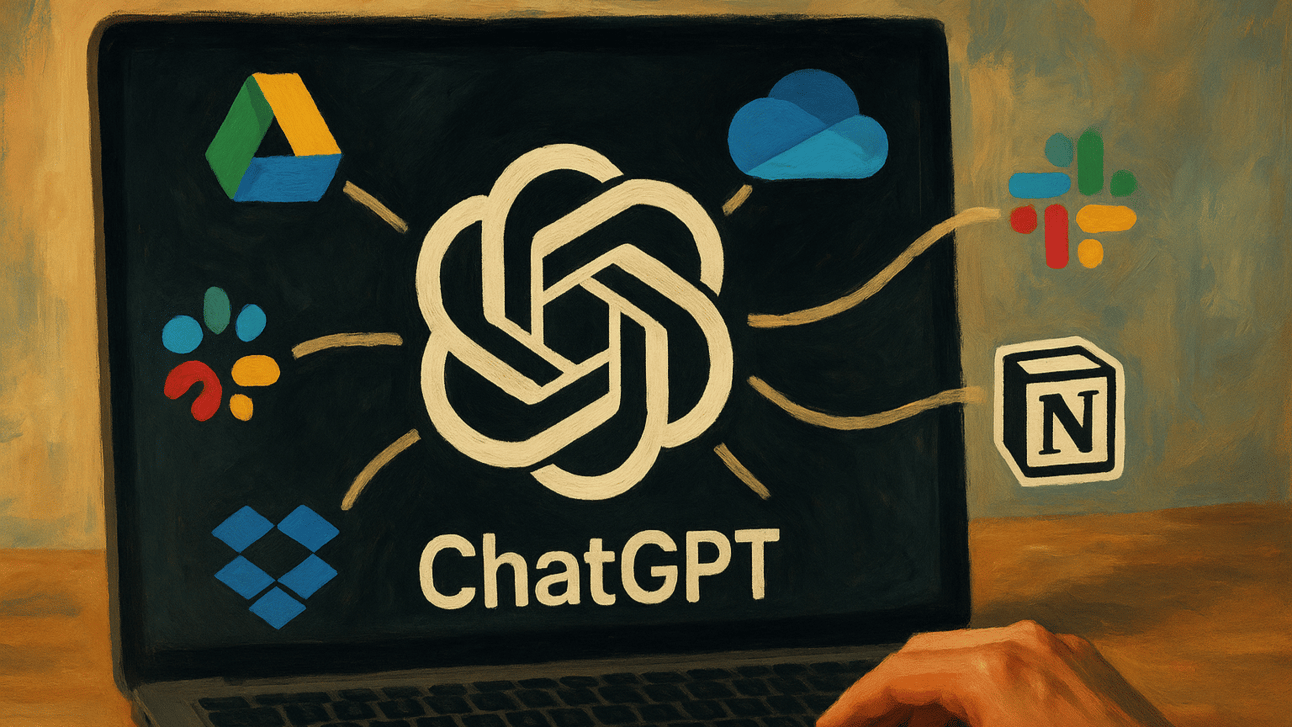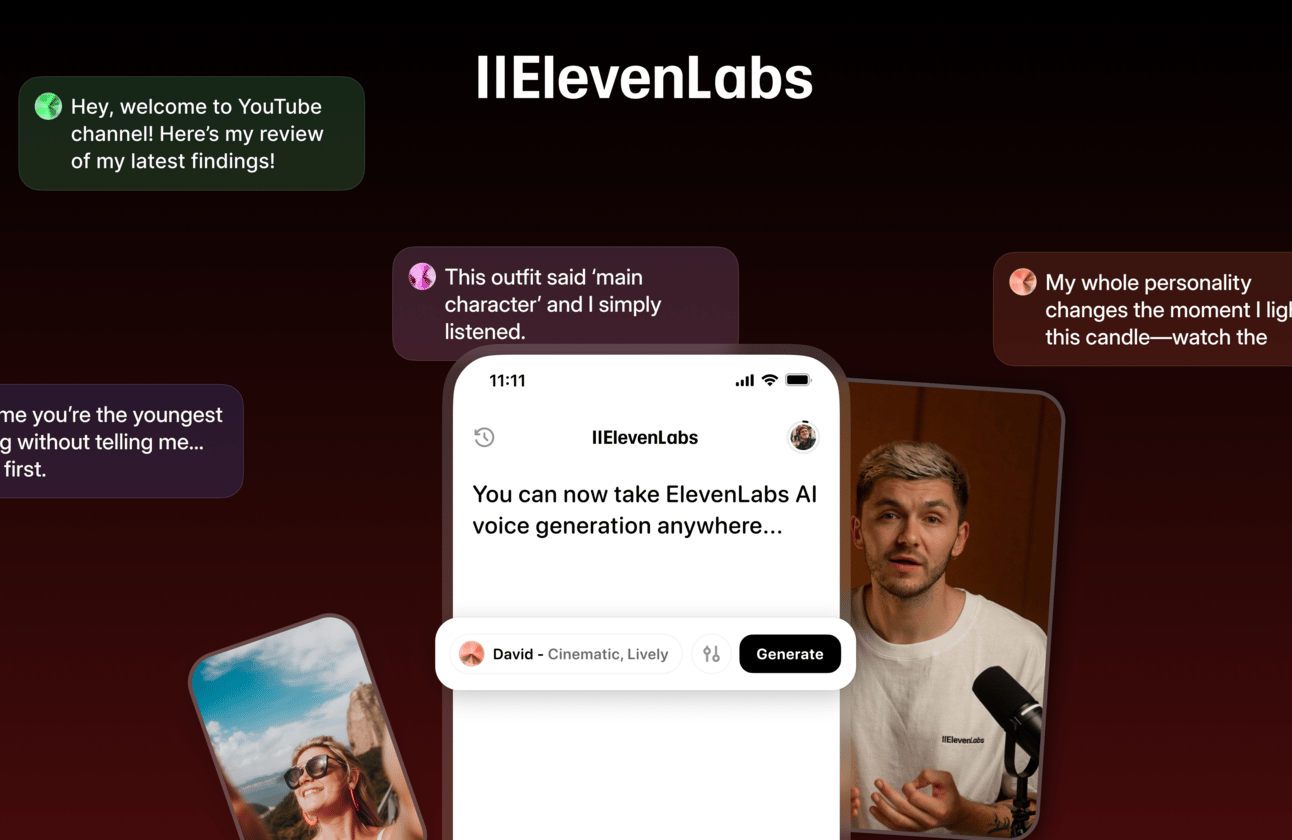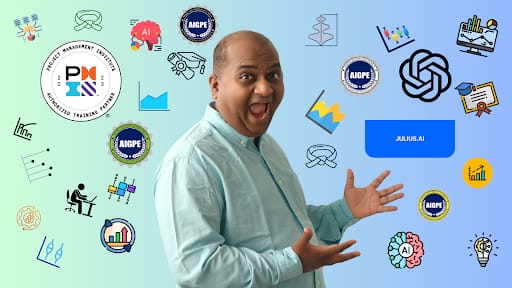- AI Pulse
- Posts
- 🎧 850,000 Spotify Fans Fooled: “The Velvet Sundown” Wasn’t a Band—It Was Pure AI!
🎧 850,000 Spotify Fans Fooled: “The Velvet Sundown” Wasn’t a Band—It Was Pure AI!

Hello There!
A fake band made by AI tricked Spotify and gained over 850,000 listeners. A new AI tool finds brain tumors with high accuracy using just fluid samples, and no surgery needed. Capgemini bought WNS for $3.3 billion to bring AI into everyday business tasks. ChatGPT can now read your files from Google Drive, Slack, and other tools. OpenAI also started using Google’s chips to reduce hardware costs. Baidu launched an AI video tool and upgraded its search engine. Sam Altman said the next phase of AI is already here.
These changes affect music, medicine, work, and the tools you use daily. AI is not just a feature. It’s becoming a part of how decisions are made.
In today’s AI Pulse
✨ Cut Through the Headlines with The Rundown AI – Smart updates, real stories, zero clutter.
🎵 Velvet Sundown Was Made by AI – The band sounded real. It wasn’t. It was an AI test that fooled thousands.
🧬 AI Finds Brain Tumors Without Surgery – A small fluid sample gives early results with 99% accuracy.
💰Capgemini Buys WNS for $3.3B – The goal is to build AI systems that help with daily business work.
🗂️ ChatGPT Can Now Read Your Files – You can ask questions about Drive, Slack, or Dropbox directly in chat.
🎯 AI Tool of the Day: ElevenLabs – Type your message and hear it spoken in a natural voice.
⚡ Quick Hits – In AI Today
📈 Tool to Build Your Skill - Certified AI Visualization Beginner
🧠 Key Quote & Insight | Jeff Hawkins, Neuroscientist and Founder, Numenta
The gap between sharp tools and sharper minds is closing fast. Stay ready. The upgrades are coming faster than expected.
TOP STORIES TODAY
Stay up-to-date with AI
The Rundown is the most trusted AI newsletter in the world, with 1,000,000+ readers and exclusive interviews with AI leaders like Mark Zuckerberg, Demis Hassibis, Mustafa Suleyman, and more.
Their expert research team spends all day learning what’s new in AI and talking with industry experts, then distills the most important developments into one free email every morning.
Plus, complete the quiz after signing up and they’ll recommend the best AI tools, guides, and courses – tailored to your needs.

Image Credit: AIGPE™
🧠The Pulse
In just weeks, “The Velvet Sundown” skyrocketed to nearly a million monthly listeners. But here’s the twist: the entire act—vocals, lyrics, visuals—was AI. No humans, no label, no tour. Just pure code. And no one saw it coming.
📌The Download
In early June, The Velvet Sundown appeared on Spotify without warning. Their music mimicked 1970s soft rock, complete with retro album covers and a fictional backstory. No label press, no tour dates. Just polished tracks uploaded quietly. Within days, the band began trending. Within weeks, they had over 850,000 monthly listeners and a growing fanbase that never questioned the source.
The creators have now admitted it was a deliberate AI experiment. Every song, lyric, and voice was produced by platforms like Suno. Even the artist's photos and names were made using generative tools. The project was launched to test how far an AI band could go in a real market without disclosure. They wanted to see if anyone would notice. Most didn’t.
Once suspicions grew online, the team behind the project revealed the truth. They framed it as a creative provocation, not a scam. But that didn’t ease the reaction. Music industry leaders like the BPI and artists including Elton John voiced concern. Deezer labeled the band as AI-made. Spotify did not respond. The silence triggered bigger questions about ethics, transparency, and control on streaming platforms.
💡What This Means for You
If your work depends on insights, research, or creative input, source quality matters more than ever. Not everything that sounds polished was made by people. AI content is flooding the tools you trust. Before you rely on what you hear, read, or share, always ask who made it, and why it exists.

Image Credit: AIGPE™
🧠The Pulse
A new AI model is turning heads in oncology. It detects brain tumors by analyzing spinal fluid—no scalpels, no scans. By comparing molecular signals to vast tumor databases, it delivers near-instant results with 99% precision. The brain stays untouched. The diagnosis? Faster, smarter, and possibly decades ahead of medicine.
📌The Download
Researchers at Charité University Hospital in Berlin, along with the German Cancer Consortium, developed an AI model named crossNN. The model analyzes DNA methylation markers found in cerebrospinal fluid. These markers act like chemical fingerprints for each type of tumor, offering a fast and noninvasive way to identify cancer without needing to cut into brain tissue.
CrossNN was trained on over 2,800 reference samples and validated on more than 5,000 real patient cases. It successfully identified 82 types of central nervous system tumors and over 170 cancer types in total. The model reached 99.1 percent accuracy for brain tumors and performed at nearly 98 percent across all cancers.
Unlike many AI systems that operate as black boxes, crossNN is built with transparency. Its decisions are explainable, which gives clinicians the confidence to use it in medical decisions. This also reduces the risk of hidden errors and supports accountability in life-or-death settings.
Clinical trials are now planned across eight hospitals in Germany. If results hold, this tool could replace biopsies for certain tumor types. That would mean faster diagnoses, fewer risks for patients, and earlier access to treatment in conditions where time and precision are everything.
💡What This Means for You
This tool finds problems early, without surgery or guesswork. It proves that smart systems can spot warning signs before people can. That’s the bigger message. In your own work, are you relying on slow, manual checks? Or using tools that help you see problems before they grow? Early action starts with better signals.

Image Credit: AIGPE™
🧠The Pulse
Capgemini just dropped $3.3 billion in cash to acquire WNS, a business transformation firm. This is about more than expansion. It’s a full step into AI-powered decision systems. WNS brings workflow depth. Capgemini brings technical strength. Together, they are rewriting how intelligence flows through business services.
📌 The Download
Capgemini confirmed the acquisition of WNS on July 7 for $3.3 billion. The deal is entirely in cash and is expected to close once regulatory approvals are complete.
WNS is a major player in business process management, with strengths in finance, insurance, healthcare, and logistics. Its teams manage real-world operations that generate structured and unstructured data, ideal conditions for generative AI and agentic systems to thrive.
Capgemini plans to integrate WNS’s process expertise with its own AI frameworks. This means building autonomous systems that can handle not just tasks, but decisions, powered by reliable operational logic and real-time data inputs.
The financial outlook is strong. Capgemini expects earnings per share to rise between 4% and 7% by 2027. But beyond numbers, this signals a shift in how consulting firms are evolving. Human workflows are no longer separate from AI design. They are becoming the blueprint.
💡What This Means for You
The boundary between tech and operations is vanishing. If you work in process design, analytics, or team leadership, you are entering a new era. AI is not here to replace expertise. It needs it. Those who understand the flow of work will shape the tools that run it. Stay close.

Image Credit: AIGPE™
🧠The Pulse
ChatGPT can now connect directly to your files. Google Drive. OneDrive. Slack. Dropbox. Even Notion. OpenAI has quietly launched Connectors, tools that let you ask questions about your own documents, chats, and slides without switching tabs. Your workspace is no longer scattered. It now responds.
📌 The Download
OpenAI launched Connectors for ChatGPT’s Pro, Team, Enterprise, and Edu users. This feature links tools like Google Drive, Microsoft OneDrive, Dropbox, Slack, Notion, and more, allowing live access to files, threads, and stored content inside the chat window. You can now ask for a summary of last week’s team notes, pull stats from a spreadsheet, or search your inbox, without uploading a thing.
The system runs on a secure framework called Model Spec Protocol. This ensures ChatGPT only accesses content you have authorized. Files are not used for training unless you opt in. Connectors follow existing permission settings, making them safe to use in enterprise and shared environments.
A second layer, called Deep Research, allows ChatGPT to index full data repositories. That means instead of feeding it one document at a time, you can give it access to a full folder, knowledge base, or workspace. The model can then reference and synthesize content across those sources in one response.
Rollout is staggered. Some Pro users may not see the feature yet, while Team and Enterprise users are already gaining access. The interface appears within the “Explore GPTs” section. Connectors are being framed not as plug-ins, but as direct data bridges that make ChatGPT feel more like a knowledge assistant than a chatbot.
💡What This Means for You
This turns ChatGPT into your second screen. You no longer need to dig through tabs or paste walls of text. But when AI has access to your files, the risks grow too. Make time to set limits. Define what the AI can see. The tools are powerful. Your judgment needs to be sharper.
AI TOOL OF THE DAY

Image Credit: ElevenLabs
💡 What It Is?
ElevenLabs creates speech from text. You type a sentence. It speaks it back with emotion, tone, and clarity. The voices sound real. Not flat or robotic. You can pick from presets or upload your own voice.
🚀 Why Is It Trending?
Audio content is everywhere. People want faster ways to narrate, localize, or test ideas. ElevenLabs helps creators sound polished. It adds personality to apps, videos, and support tools. Many teams use it daily.
✅ What You Can Do With It?
Create natural voiceovers. Clone a voice with a short sample. Change pitch and pace. Translate voices into other languages. Build characters or assistants that sound human. All from one place.
IN AI TODAY - QUICK HITS
⚡Quick Hits (60‑Second News Sprint)
Short, sharp updates to keep your finger on the AI pulse.
⚙️ OpenAI Turns to Google TPUs: OpenAI is starting to use Google’s TPU hardware for ChatGPT. This helps cut computing costs and reduces its dependence on Nvidia chips. The move may affect how future AI tools are priced and built.
🎞️ Baidu Launches MuseSteamer + Upgrades Search: Baidu revealed a new tool called MuseSteamer that turns images into 10-second videos with synced sound. At the same time, its search engine now supports voice, images, and long queries. These tools could challenge Google’s lead in AI-powered content and search.
✍️ Sam Altman Says AGI Is Already Taking Off: “We’re past the event horizon — AGI takeoff is underway.” That’s what OpenAI’s CEO said live on TechCrunch. His message signals a need for faster planning, stronger AI rules, and urgent policy work.
🏫 Google Gemini Expands into Classrooms: Gemini 2.5 Pro is now part of Google Workspace for Education. It offers tools like quiz makers, diagram helpers, and video summaries at no added cost. Built-in safety features protect student data and learning environments.
TOOL TO SHARPEN YOUR SKILLS
📈Improve Processes. Drive Results. Get Certified.

AIGPE™ Certified AI Visualization Course
Learn how to turn AI data into simple visuals. Understand charts, dashboards, and tools that bring insights to life. Start your journey in AI visualization today. Enroll Now.
KEY QUOTES AND STRATEGIC INSIGHTS
"The key to artificial intelligence has always been the representation."
— Jeff Hawkins, Neuroscientist and Founder, Numenta
That’s it for today’s AI Pulse!We’d love your feedback, what did you think of today’s issue? Your thoughts help us shape better, sharper updates every week. |
🙌 About Us
AI Pulse is the official newsletter by AIGPE™. Our mission: help professionals master Lean, Six Sigma, Project Management, and now AI, so you can deliver breakthroughs that stick.
Love this edition? Share it with one colleague and multiply the impact.
Have feedback? Hit reply, we read every note.
See you next week,
Team AIGPETM


